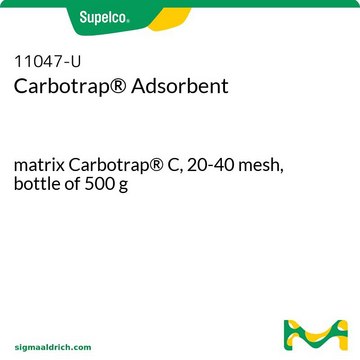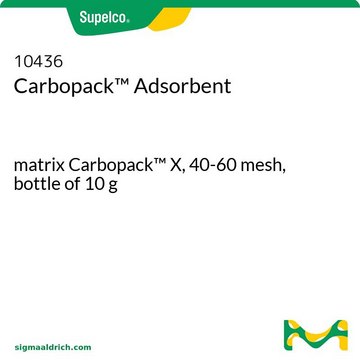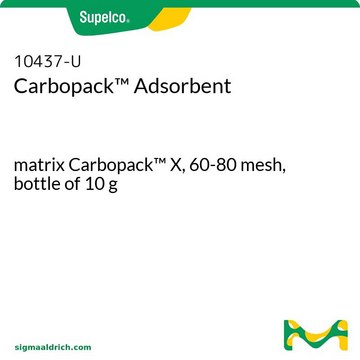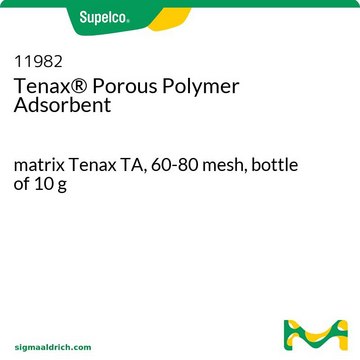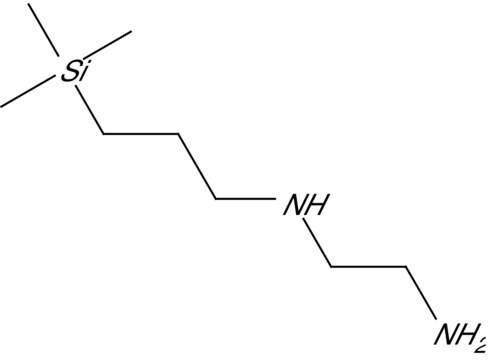10435-U
Carbotrap® Carbon Adsorbent
matrix Carbotrap® X, 20-40 mesh, bottle of 10 g
About This Item
Recommended Products
Product Name
Carbotrap® Adsorbent, matrix Carbotrap® X, 20-40 mesh, bottle of 10 g
product line
Carbotrap®
Quality Level
form
granular
packaging
bottle of 10 g
technique(s)
LPLC: suitable
surface area
~240 m2/g
matrix
Carbotrap® X
matrix active group
carbon
particle size
20-40 mesh
pore size
~0.62 cm3/g mesoporosity
~0 cm3/g macroporosity
~0 cm3/g microporosity
~100 Å pore diameter
density
~0.44 g/mL (free fall density)
separation technique
reversed phase
Looking for similar products? Visit Product Comparison Guide
General description
- Granular
- Friable
- Used for molecules with an analyte size relative to C3-C20+ n-alkanes
- Hydrophobic (can be used in high humidity environments)
Generally, GCB adsorbents offer weaker relative adsorptive strength compared to carbon molecular sieve (CMS) adsorbents, and similar relative adsorptive strength compared to spherical graphitized polymer carbon (SGPC) adsorbents. Our Carbotrap products are a type of GCB adsorbent.
- Particles are 20/40 mesh
- These large particles allow high flow rates without excessive pressure drops
For more information about any of our specialty carbon adsorbents, please visit sigma-aldrich.com/carbon
Legal Information
Not finding the right product?
Try our Product Selector Tool.
Storage Class Code
11 - Combustible Solids
WGK
nwg
Flash Point(F)
Not applicable
Flash Point(C)
Not applicable
Personal Protective Equipment
Choose from one of the most recent versions:
Certificates of Analysis (COA)
Sorry, we don't have COAs for this product available online at this time.
If you need assistance, please contact Customer Support.
Already Own This Product?
Find documentation for the products that you have recently purchased in the Document Library.
Customers Also Viewed
Articles
Carbon Molecular sieves (CMS) are a versatile range of adsorbents that can be tailored for specific applications. Supelco® scientists have been synthesizing synthetic CMS carbons for several decades, starting from tailoring of the starting polymers/copolymers, to modifying the final properties of the subsequent CMS carbon.
Our team of scientists has experience in all areas of research including Life Science, Material Science, Chemical Synthesis, Chromatography, Analytical and many others.
Contact Technical Service